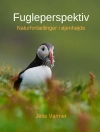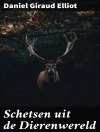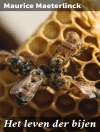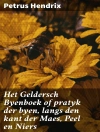All You Need to Know About Spiders
Spiders are super predators and devour everything they can overpower. To do this, they have developed incredibly good catching techniques and, with spider silk, a tool that makes material technology green with envy. The males are usually smaller than the females and, in order to have sex, they have to come up with a lot to avoid being misunderstood as easy prey: Dancing, drumming, and gifts almost always help. Spiders use their venom in very precise doses, and since humans are not on their menu, they are harmless to us. Many people’s (unnecessary) fear of spiders finds cultural roots as early as the Middle Ages. Nevertheless, spider fear is easily treatable. There is no habitat or building without spiders. And that’s a good thing, because spiders have fascinating properties and their world is full of surprises. Everything you need to know about them is explained in this book in understandable language by experts for laymen. In addition, some of the most common spider species in the house and garden are briefly presented with tips for observation.
The authors
This book is authored by eight scientists, all of them members of the Association for the Promotion of Spider Research:
Wolfgang Nentwig, Jutta Ansorg, Angelo Bolzern, Holger Frick, Anne-Sarah Ganske, Ambros Hänggi, Christin Kropf und Anna Stäubli
Зміст
Preface
Part I: Morphology and function of spiders- What do spiders look like?.- How do spiders hear, smell, taste, and sense?.- How do spiders see?- How do spiders move? -How can spiders grow despite their outer skeleton?.- Spider venom.- Spider silk.- Prey catch and spider webs.- How do spiders feed and digest?- Sex of spiders Part II: We live in a world full of spiders- Some like it cold.- how spiders survive adverse seasons.- How do spiders defend themselves against enemies? -The importance of spiders in our environment.- Species richness of spiders.- Worldwide import and spread of spiders.- Spiders in and at our house- Fascinating spiders- Part III: our emotional side towards spiders- Fear of spiders.- Communication about spiders.- spiders and humans: a tense relationship? -Spiders as pets?- Appendix- Common spider families- How to determine spiders?-Authors- Association for the Promotion of Spider Research- References- Index.
Про автора
Wolfgang Nentwig
Biology studies, 1981 Ph D, University of Marburg (Germany)
1983–1984 Visiting Researcher at the Smithsonian Tropical Research Institute (Panama), Assistant Professor University of Regensburg
1988–2019 Professor of Ecology, University of Bern (Switzerland), research interests in agroecology, invasion ecology, spider ecology, spider venom
Co-founder of ‘araneae – Spiders of Europe’ (https://araneae.nmbe.ch) and co-organizer of the World Spider Catalog (https://wsc.nmbe.ch)
Jutta Ansorg
Studies in energy- and process engineering and Ph D 2001, Technical University of Berlin
1993–1998 Lecturer in practical mathematics and research in the field of process engineering
1998–2014 Engineer in international power plant and waste incineration plant construction in Switzerland
Since 2014 specialist for airpollution control and noise protection in the Canton of Aargau (Switzerland)
She has been involved with spiders outside of work for about 45 years.
Angelo Bolzern
Biology studies and Ph D 2010, University of Basel (Switzerland)
2012–2013 Research visit to the American Museum of Natural History, New York (USA) on spider taxonomy and systematics
2014–2018 Freelance researcher, employment in practical nature conservation and environmental education, training as a high school teacher
since 2019 Staff member Education & Outreach, Natural History Museum Basel (Switzerland)
Holger Frick
Biology studies and Ph D 2010, University of Bern and Natural History Museum Bern (Switzerland)
2010–2011 Post Doc at the Natural History Museum of Denmark, Copenhagen
2011–2014 Head of Department, Office for the Environment and Curator of the State Natural History Collection Liechtenstein
2014–2019 Head of the natural history museum, Naturama Aargau (Switzerland)
2019–2020 Project Manager, Swiss Academy of Sciences and Natural History Museum Fribourg (Switzerland)
Since 2021 Head of Biosciences and Curator of Invertebrates at the Natural History Museum Basel (Switzerland)
Anne-Sarah Ganske
Biology studies, 2014 Bachelor of Science (Biology), 2016 Master of Science (Biodiversity and Ecology), University of Greifswald (Germany)
2017–2018 Marie-Skłodowska-Curie Fellow at the Natural History Museum Vienna (Austria)
2019 Ph D in Biology at the University of Vienna (Austria); Research topics: morphology and sensory biology of spiders; morphology, systematics and phylogeny of centipedes
Ambros Hänggi
Biology studies, dissertation 1987, University of Bern (Switzerland)
Assistantat the University of Bern and freelance biologist; Co-editor of the catalogue of Swiss spiders (1990)
1990-2020 Curator for invertebrates (excluding insects) at the Natural History Museum Basel (Switzerland), from 2021 honorary assistant; Conception and implementation of special exhibitions and projects for the comprehensible communication of research results
Research focus on faunistics and systematics of spiders
Co-founder of ‘araneae – Spiders of Europe’ (https://araneae.nmbe.ch)
Christian Kropf
Biology studies, 1992 Ph D, University of Graz (Austria)
1992–1995 Assistant at the University of Graz
1994 Research visit University of New Delhi (India)
since 1995 Curator for invertebrates at the Natural History Museum Bern (Switzerland)
since 1996 Lecturer at the University of Bern, 2011 Habilitation
main research interests taxonomy, systematics, functional morphology of arthropods, especially spiders
Co-founder of ‘araneae – Spiders of Europe’ (https://araneae.nmbe.ch) and co-organizer of the World Spider Catalog (https://wsc.nmbe.ch)
Anna Stäubli
Studies in Natural Sciences, 1998 Diplom an der ETH Zürich (Switzerland)
2005 resp. 2006/2011 further education in systematics and taxonomy of spiders and butterflies
1998–2013 employee in office for nature conservation in agriculture
Since 2013 owner of the company Projekte Ökologie Landwirtschaft: specialized in field surveys of spiders, butterflies, grasshoppers and dragonflies, as well as nature conservation consulting and impact monitoring












